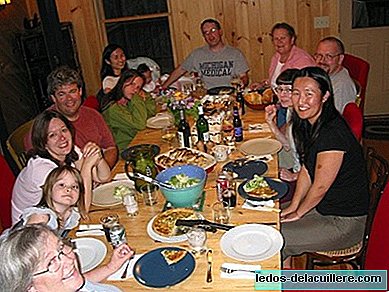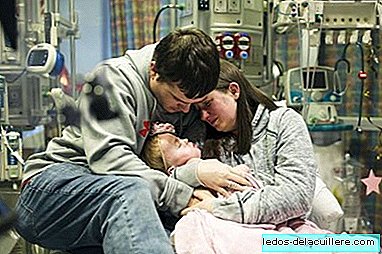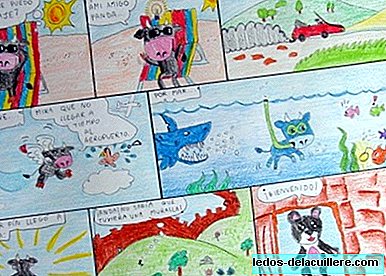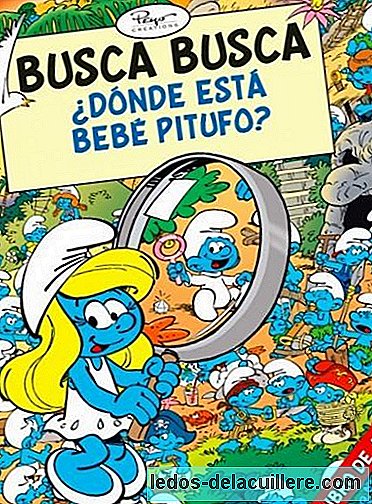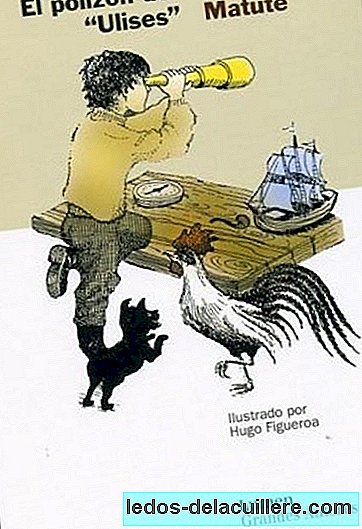
Ana Maria Matute He died on June 25, 2014 in a hospital in Barcelona of a cardiorespiratory crisis at 88 years of age and about to publish a new novel, which I imagine will be launched posthumously. From Ana María Matute we keep a good memory because in 2011 my daughter participated in the radio program, How do you hear it, like children with Santiago Alcanda on Radio 3, in which we read part of The Stray Tales as a tribute to the Cervantes Prize that had been granted.
From The homeless tales its author explained the capacity of transmission that this literary genre had and how they serve to reinforce unforgettable and intense moments in the childhood of every child. And the stories are homeless travelers because they go from home to home leaving laughter or tears in their wake and are transmitted and spread everywhere. Although the stories offer different moments depending on who reads them, the intonation applied and especially who listens to them because then the imagination manages to take the story to an unforgettable experience.
In the radio program my daughter read with Santiago Alcanda the story of the Snow Girl that as I found it on the Internet in text I paste it here in case you want to read it at home with your family. It is a text by Ana María Matute that was Cervantes Prize in 2011:
My grandmother told me, when I was little, the story of the Snow Girl. This snow girl, on her lips, was irremissibly located in that landscape of our mountains, in a high mountain range of old Castile. The peasants of the story were for me a couple of farmers of dark and rough complexion, of laconic words and lost eyes, as I had seen them in our land. One day the farmer in this story saw it snow. I saw then, with his eyes, a mountain winter, with black skeletons of trees covered with moisture, with sparkling stars. I saw long roads, mountains above, and that gray sky, with its long clouds, which had a relief of stones. The man in the story, who saw snow, was very sad because he had no children. He went out into the snow, and, with her, made a girl. His wife looked at him from the window. My grandmother explained: "His feet didn't turn out very well. He entered the house and his wife brought him a pan. So, they shaped them as best they could." The image can not be more confusing. However, for me, at that time, nothing was more natural. I saw the woman perfectly, who brought a black pan like soot. On her the snow of the girl stood out white, alive. And I kept seeing, clearly, how the old farmer shaped the little feet. "The girl started talking then," continued my grandmother. Here the miracle of the story was worked. His magic flooded the heart with a sweet, stabbing rain. And a new and restless world began to shake. It was also so natural that the snow girl began to speak. On my grandmother's lips, inside the story and the landscape, it could not be otherwise. My grandmother said, then, that the snow girl grew up to seven. But the night of San Juan arrived. In the story, the night of San Juan has a smell, a temperature and a light that do not exist in reality. The night of San Juan is a night exclusively for stories. In the one that concerns me now there were also bonfires, as is rigorous. And my grandmother told me: "All the children jumped over the fire, but the snow girl was afraid. Finally, they both made fun of her, she decided. And then, do you know what happened to the snow girl? " Yes, I imagined it well. I watched her become soft, until she melted. It would disappear forever. "And he didn't put out the fire?" I asked, with a vague desire. Ah! But that my grandmother didn't know. He only knew that the elderly peasants mourned the loss of their little girl.
At home we also have the work of The stowaway of Ulysses, a beautiful text that we are reading and savoring at night before bedtime and that has caught us in the middle of Ana María Matute's death. We will finish it in these summer days and it will help us to continue knowing much of the work of this great Spanish writer that we will miss very much.


